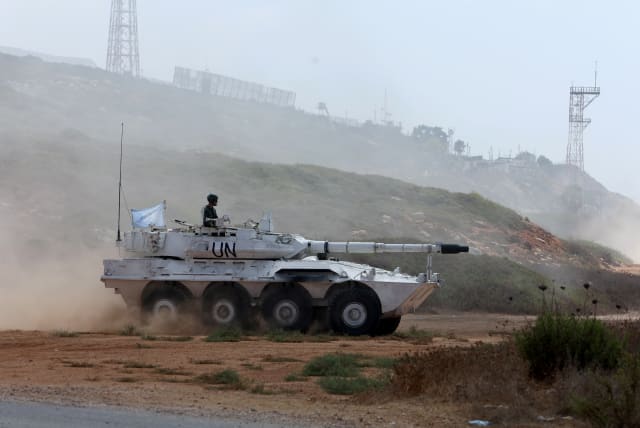US exploring land border delineation between Lebanon, Israel - Hochstein

Senior White House adviser Amos Hochstein said it was "natural" to look into the issue following the delineation in 2022 of the maritime border between the two countries.
The United States is exploring the possibility of resolving the long-standing border dispute between Lebanon and Israel, senior White House adviser Amos Hochstein said on Thursday at the end of a two-day visit to Lebanon.
Hochstein said it was "natural" to look into the issue following the delineation in 2022 of the maritime border between the two countries, which paved the way for offshore exploration activities to begin on behalf of Lebanon last week.
The senior White House adviser said he visited southern Lebanon during his trip "to understand and learn more about what is needed to be able to potentially achieve an outcome."
"It is time for me to hear from the other side, and to make an assessment if this is a right time," he said.
The current demarcation line between the two countries is known as the Blue Line, a frontier mapped by the United Nations that marks the line to which Israeli forces withdrew when they left south Lebanon in 2000.
Blue Line border tensions
Tensions have flared along it this summer, with rockets being fired at Israel during flare-ups of Israeli-Palestinian violence, and members of the heavily armed Lebanese group Hezbollah or its supporters facing off with Israeli forces.
Lebanon's caretaker foreign minister Abdallah Bou Habib said last week that determining the land border could put an end to those tensions.
For Israel, the land dispute is part of the larger conflict with Lebanon and the Iranian proxy group Hezbollah. It operates within Lebanon and has a strong military presence along Israel’s border.
Israel has blamed the growing border friction on Iran, which it said is attempting to create a ring of violence along the country’s borders, in Gaza, Lebanon and the West Bank.
An Israeli source that Israel and Lebanon are “very far” from settling their land disputes.
Jerusalem Post Store
`; document.getElementById("linkPremium").innerHTML = cont; var divWithLink = document.getElementById("premium-link"); if (divWithLink !== null && divWithLink !== 'undefined') { divWithLink.style.border = "solid 1px #cb0f3e"; divWithLink.style.textAlign = "center"; divWithLink.style.marginBottom = "15px"; divWithLink.style.marginTop = "15px"; divWithLink.style.width = "100%"; divWithLink.style.backgroundColor = "#122952"; divWithLink.style.color = "#ffffff"; divWithLink.style.lineHeight = "1.5"; } } (function (v, i) { });

